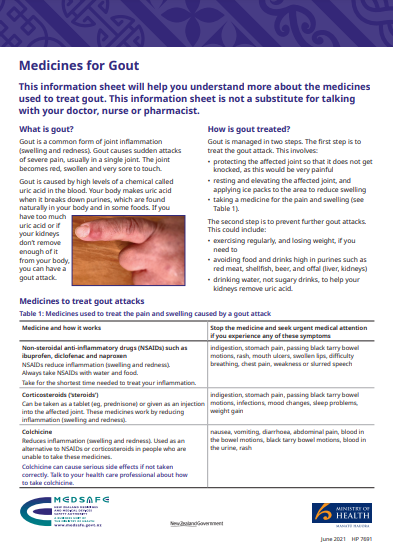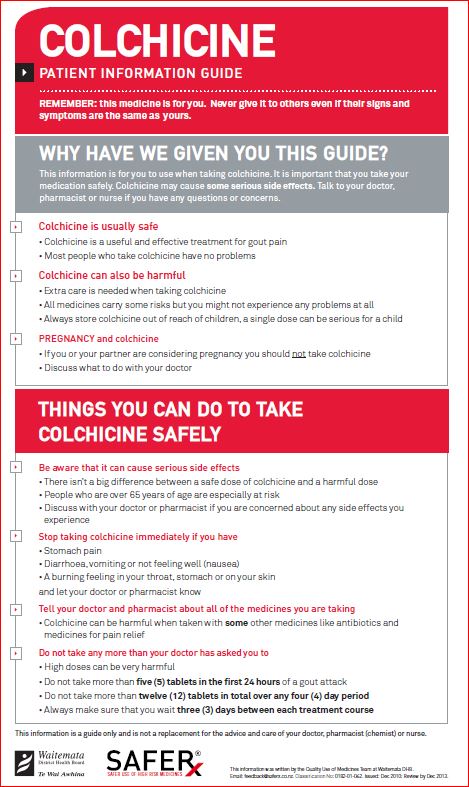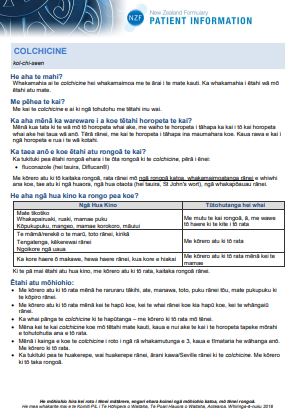In Aotearoa New Zealand, colchicine is available as 0.5 mg tablets.
- The pharmacy label on your medicine will tell you how much colchicine to take, how often to take it and any special instructions.
- Never take more than the prescribed dose.
- Taking too much colchicine can cause serious side effects.
The medicines allopurinol or febuxostat limit the amount of uric acid your body makes. Raised uric acid levels in the blood causes gout.
It’s common to have flare-ups when you first start treatment with allopurinol or febuxostat so your doctor may recommend you take colchicine to reduce any gout attacks (flare-ups) happening until the urate level in your blood is lowered.
The usual dose is:
- 1 tablet 2 times a day for 6 months.
If you get runny poos (diarrhoea) from taking colchicine your doctor may lower your dose to:
- 1 tablet once a day, OR 1 tablet on alternate days (every other day).
It is generally recommended you keep taking colchicine for 3–6 months after your target serum urate level has been reached.
Colchicine is a useful and effective treatment for gout and is usually safe.
- Most people who take colchicine have no problems but extra care is needed when taking it.
- Colchicine is considered a high-risk medicine because it can cause serious side effects. There isn’t a big difference between a safe dose of colchicine and a harmful dose. People who are over 65 years of age are especially at risk.
- This means you must always take colchicine exactly as your doctor has told you to.
| Signs of taking too much colchicine |
|
Signs that you may be taking too much colchicine include:
- tummy pain
- runny poos (diarrhoea)
- vomiting (being sick) or not feeling well (nausea)
- a burning feeling in your throat or stomach, or on your skin.
If you get any of these symptoms, stop taking colchicine and contact your doctor immediately or freephone Healthline 0800 611 116.
|









